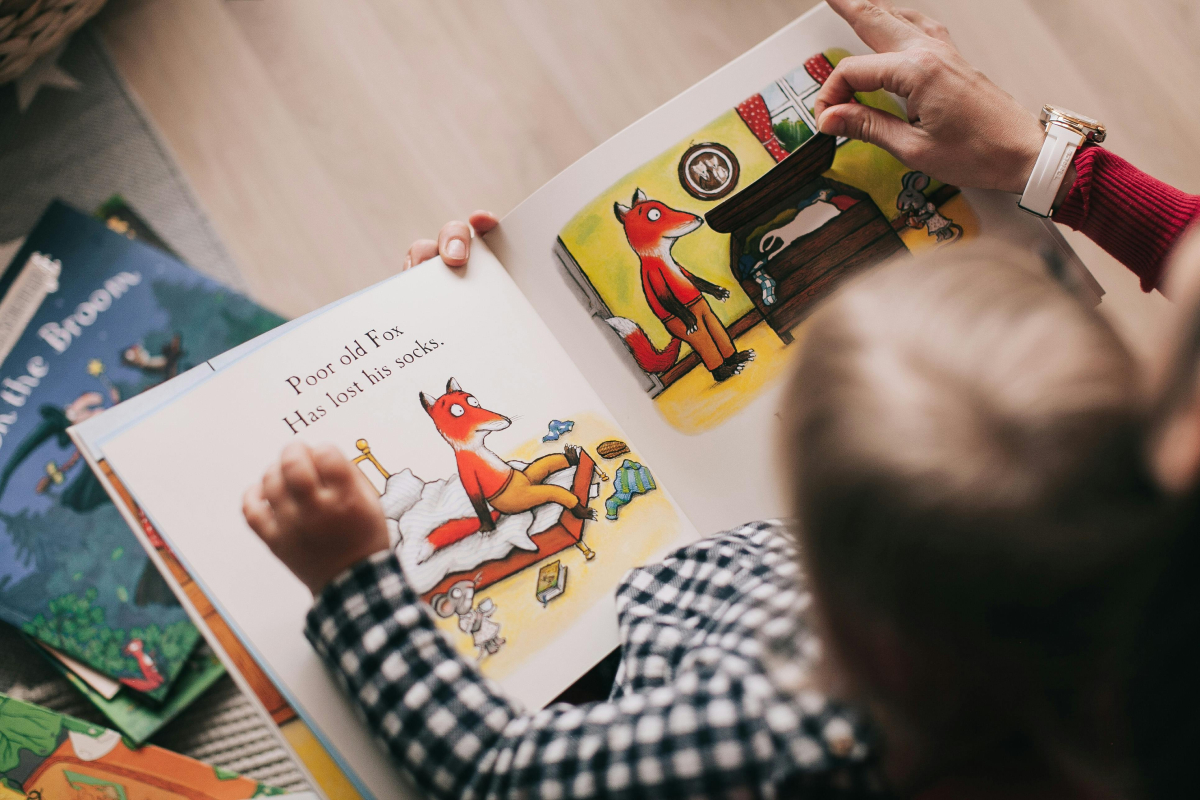Bedtime is a sacred moment for both children and parents, offering a chance to wind down and bond. But did you know that when educators read to children at daycare or childcare centers, especially before nap or bedtime, they are doing more than just helping them relax? Bedtime stories play a crucial role in developing a child's reading habits, cognitive skills, and emotional well-being. This small yet meaningful routine is an essential part of early childhood education, and the effects can extend far beyond nap time.
In this blog, we’ll explore why reading at bedtime is so important for children, how it can help foster a love for books, and how technology like the kidsday helps strengthen cooperation between educators and parents.
The Importance of Bedtime Reading for Children:
1. Promotes Early Literacy and Language Development Reading to children, especially at a time when they’re winding down for sleep, creates a calm and nurturing environment that promotes language acquisition. The more words children hear, the greater their vocabulary and comprehension skills become. Bedtime stories help improve not only language skills but also listening skills as children engage with the narrative, follow along with the plot, and learn to understand characters and emotions.
2. Encourages a Love for Reading Consistent exposure to books at an early age sets the stage for lifelong reading habits. When children are read to regularly, they start to associate books with comfort, warmth, and enjoyment. By making reading a part of the bedtime routine, educators help create a positive association with books, which can lead to a greater curiosity about stories and a love for reading that extends into their school years and beyond.

3. Enhances Emotional Understanding and Empathy Many children’s books are filled with characters who navigate challenges, emotions, and relationships. Bedtime stories provide a safe space for children to explore complex emotions and develop empathy. Educators can use stories to guide children in understanding themselves and others, all while building a sense of emotional intelligence and resilience.
4. Establishes a Calming Routine A structured bedtime routine that includes reading helps children feel safe and secure. The predictability of a bedtime story encourages relaxation and prepares children for sleep. This routine can become a comforting ritual that aids in a child’s emotional regulation, helping them feel more settled and ready to rest.
How Reading Before Bed Helps Develop the Habit of Reading:
Children are like sponges, soaking up information and learning new behaviors every day. When educators introduce reading as part of the bedtime routine, they lay the foundation for positive reading habits. Children begin to see reading as something enjoyable and something that adults value. Over time, this builds a natural desire to read independently, whether it’s flipping through picture books, reading simple stories, or even asking their parents to read to them at home.
Developing a habit early on is key to a child’s relationship with books. The earlier children are introduced to the world of reading, the more likely they are to continue seeking out books and stories. This not only strengthens their literacy skills but also nurtures a lifelong love of learning.
How kidsday Strengthens the Parent-Educator Connection:
We understand the importance of collaboration between educators and parents. One of the ways we enhance this partnership is through the kidsday, which allows educators to track and communicate various aspects of your child’s day. This includes a dedicated section for tracking your child’s sleep and bedtime routine, where educators can also upload photos and notes.
By utilizing the sleep report field in the KidsDay app, educators can inform parents about the specific book they read to the child during nap or bedtime. This simple gesture fosters open communication and strengthens the bond between parents and educators. Parents can then ask their children about the story they heard during the day, encouraging children to recall details and reflect on the book they were read.
This kind of continuous feedback loop is crucial because it:
- Strengthens Cooperation: Parents can reinforce what their children learn in the center at home, creating a seamless learning experience.
- Encourages Active Participation: Parents can engage in meaningful conversations with their children about the book, helping reinforce vocabulary, themes, and emotional understanding.
- Creates a Shared Experience: When children talk about stories they’ve heard with both their educators and parents, it deepens their connection to the content and helps them feel valued by the adults in their lives.
The habit of reading before bedtime is a powerful tool in early childhood development. It fosters language skills, encourages a love for reading, and strengthens emotional intelligence. By incorporating bedtime stories into the daily routine at childcare centers, educators play an essential role in helping children build a lifelong connection with books.
Through the kidsday we bridge the gap between the classroom and home, giving parents insight into their child’s day while also reinforcing the importance of storytelling and reading. By discussing the book read during the day, parents can encourage reflection, further enhancing their child’s learning and emotional growth.
We’re committed to nurturing your child’s educational journey, and by working together, we can help build strong, lasting reading habits that will benefit them for years to come.








